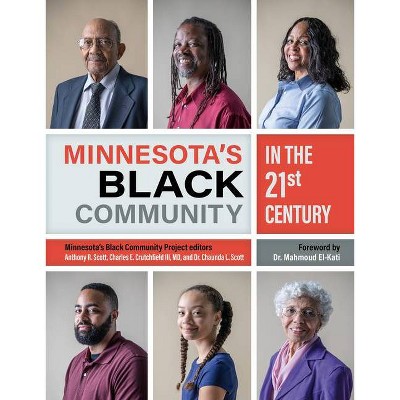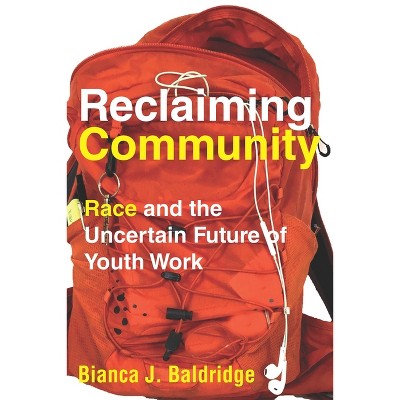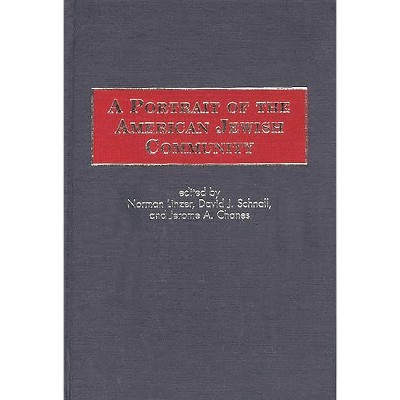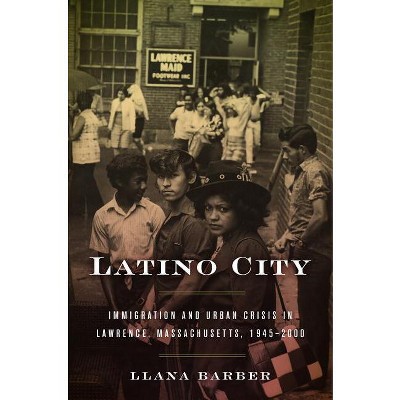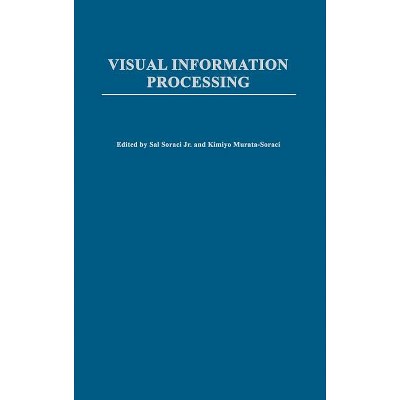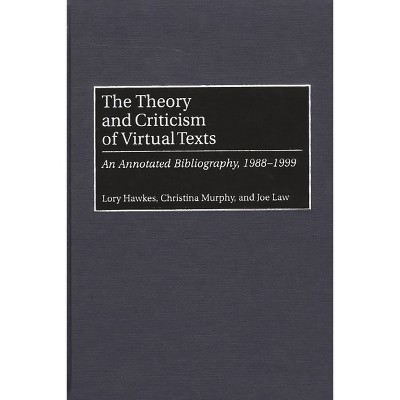Sponsored

The Information Society and the Black Community - by John T Barber & Alice A Tait (Hardcover)
In Stock
Sponsored
About this item
Highlights
- Does the Information Age promise egalitarianism and democracy, or will it simply reinforce long-standing social and economic inequalities?
- About the Author: JOHN T. BARBER is assistant Professor at Morgan State University.
- 296 Pages
- Social Science, Ethnic Studies
Description
About the Book
Does the Information Age promise egalitarianism and democracy, or will it simply reinforce long-standing social and economic inequalities? This collection of essays analyzes the emerging role of African-Americans in post-industrial society from a variety of communications research perspectives. Accepting W.J. Wilson's theory of a socially and economically isolated African-American underclass, Barber and Tait ask the logical question: what next? The Information Society and the Black Community is a critical examination of the prospects and pitfalls of a historically disadvantaged group in a period of rapid technological advances and economic growth.
Adopting Frank Websters theory of the Information Society as a framework for organization and development, the book is divided into five sections that look at technological, economic, occupational, spatial, and cultural aspects of the relationship between the African-American community and the Information Society. Part One analyzes data on African-American use of information technology, and examines how the new flow of information might effect African-American social and cultural images. Part Two focuses on African-American participation in the ownership and control of information industries. Part Three treats professional training and employment patterns affecting African-Americans in the Information Age. Part Four centers around the potential uses of information technology in solving social, political, and economic problems. Part Five addresses the growing connections of the African-American community to Africa and the rest of the world via information technology.
Book Synopsis
Does the Information Age promise egalitarianism and democracy, or will it simply reinforce long-standing social and economic inequalities? This collection of essays analyzes the emerging role of African-Americans in post-industrial society from a variety of communications research perspectives. Accepting W.J. Wilson's theory of a socially and economically isolated African-American underclass, Barber and Tait ask the logical question: what next? The Information Society and the Black Community is a critical examination of the prospects and pitfalls of a historically disadvantaged group in a period of rapid technological advances and economic growth.
Adopting Frank Websters theory of the Information Society as a framework for organization and development, the book is divided into five sections that look at technological, economic, occupational, spatial, and cultural aspects of the relationship between the African-American community and the Information Society. Part One analyzes data on African-American use of information technology, and examines how the new flow of information might effect African-American social and cultural images. Part Two focuses on African-American participation in the ownership and control of information industries. Part Three treats professional training and employment patterns affecting African-Americans in the Information Age. Part Four centers around the potential uses of information technology in solving social, political, and economic problems. Part Five addresses the growing connections of the African-American community to Africa and the rest of the world via information technology.Review Quotes
"I have read the information Society and the Black Community and found it to be the best work to date on African Americans and the new information technology. John Barber and Alice Tait have written and edited an intelligent and pioneering work. This work will stand as a monument to the proper understanding of the shape the internet and ancillary technologies will have in the black community. I am recomending this book to all of my friends and students."-Molefi Kete Asante Professor, Temple University Co-author, Thunder and Silence: The Mass Media in Africa
"The book is a comprehensive, grounded overview of why and how race continues to matter regardless of technological advance and the utopia technology promises. It provides a thorough survey of the correlations between technology, society and race unlike any other book-length work. The book points out not only the consequences of falling through the net, ' but also where the holes are that one falls through. And, it provides useful information with which we can mend the holes and break the fall. The authors show us that internet use and access, while important. are not the only measures of user's successful adoption and exploitation of technology. Ownership and control of infrastructure matter greatly, too. This is a must-read for anyone with an interest on knowing about the internet's impact on society."-Steve Jones Professor and Head of Communication University of Illinois at Chicago
.,."this compliation of works makes a significant contribution to the ongoing research of Blacks, ICT and the Information Age."-The Griot
?...this compliation of works makes a significant contribution to the ongoing research of Blacks, ICT and the Information Age.?-The Griot
?Contributors use quantitative, qualitative, and interpretive research approaches to produce an excellent and illustrative discussion of how a historically disadvantaged societal group can cope with a society that has changed its socioeconomic configuration from one based on industry to one grounded in information production and distribution.?-Choice
?Realizing that there were deep issues involved in analyzing Blacks and communications systems in the US, Barber (communications, Morgan State U., Maryland) and Tait (journalism, Central Michigan U.) conscripted scholars in their own field and others to explore the technological, economic, occupation, spatial, and cultural dimensions. Among specific topics are privacy, African American newspapers, information labor, implications for participatory democracy, and Afro-centric information content.?-Booknews
..."this compliation of works makes a significant contribution to the ongoing research of Blacks, ICT and the Information Age."-The Griot
"Contributors use quantitative, qualitative, and interpretive research approaches to produce an excellent and illustrative discussion of how a historically disadvantaged societal group can cope with a society that has changed its socioeconomic configuration from one based on industry to one grounded in information production and distribution."-Choice
"Realizing that there were deep issues involved in analyzing Blacks and communications systems in the US, Barber (communications, Morgan State U., Maryland) and Tait (journalism, Central Michigan U.) conscripted scholars in their own field and others to explore the technological, economic, occupation, spatial, and cultural dimensions. Among specific topics are privacy, African American newspapers, information labor, implications for participatory democracy, and Afro-centric information content."-Booknews
About the Author
JOHN T. BARBER is assistant Professor at Morgan State University./e He has taught at several universities and has written several reports, papers, and book chapters on the mass media and its impact on African Americans.
ALICE A. TAIT is an award-winning professor of journalism at Central Michigan University./e





